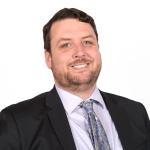Faculty Research: OIM Professor Shares Work on Improving Society Through Better Operations
December 17, 2019

“Nonprofit organizations are fundamentally distinct from their for-profit counterparts,” observes Priyank Arora, assistant professor of operations and information management at Isenberg. “They have different objectives, tradeoffs, and [stakeholders].” Arora’s research, which has appeared in Production and Operations Management, Journal of Operations Management, and other journals, focuses on three domains: healthcare operations, nonprofit organizations, and the environment—notably sustainability. “My approach is to convert on-the-ground practices to mathematical models—to transform real scenarios into math problems,” he explains. After deploying his toolkit, which includes game theory, optimization modeling, queuing theory, and event study and regression, Arora “downloads” his findings for practical application.
Consider, he remarks, the frequent disconnect between the two principal collaborators in organ recovery from eligible brain-dead donors. The first is government-approved and nonprofit organ procurement organizations, which place a premium on volume of care. Their “partners,” the hospitals where potential donors arrive and transplant surgery is performed, also value volume, but they consider reimbursement rates, operation room scheduling priorities, and the cost of inpatient waiting time as well. It is troubling, he notes, that no organs are recovered from about 28 percent of eligible potential donors. Hospitals, he explains, may prioritize helping living patients over recovering organs from deceased donors—delaying the organ recovery surgery can lower the chances that the organ can be successfully transplanted; and even if it is successfully transplanted, delays can lower the recipient’s quality of life.
To improve alignment between hospitals and organ procurement organizations, Arora models key steps along a pathway from organ procurement to surgery. To that end, his models clarify qualitative and quantitative factors (including costs), offering alternative scenarios and trade-offs. Parsing the process into discrete “milestones,” he adds, furthers understanding and collaboration. Both partners gain a better understanding of where the other is coming from.
Arora also deploys his skills on behalf of nonprofit service organizations that aid victims of domestic abuse, the homeless, and other people in difficult life situations. His models demonstrate that it is crucial to flesh out underlying causes of distressed circumstances and problematic behavior. It can prove costly and counterproductive, he adds, to throw indiscriminate services at a client without having probed below the surface. “You might give them the wrong service—the clients need not only the right service but also to obtain the service fast to avoid regression,” he emphasizes. His advice to such nonprofits is two-fold: First, they should give priority to improving their intake processes and providing better guidance for clients so that they can choose the appropriate services; and second, they should focus on offering a smaller subset of all possible services, especially when delays in achieving resolution can significantly blunt the social impact.
During the course of his research, Arora highlights that he has worked closely with several nonprofits, including Lifelink of Georgia, United Care Development Services, Daya, Georgia Works, and New England Farm Workers Council. These associations have helped him develop research work that is grounded in practice. He hopes to continue providing useful insights for a variety of organizations that engage in socially responsible operations.
Other Isenberg faculty members shared their research during the Faculty Research Speaker Series:
 Assistant Professor of Marketing Matthew Godfrey discussed his multi-year study of an Arizona mixed-used retail development project, showing how developers’ intentions can be overridden by community usage patterns.
Assistant Professor of Marketing Matthew Godfrey discussed his multi-year study of an Arizona mixed-used retail development project, showing how developers’ intentions can be overridden by community usage patterns.
 Assistant Professor of Management Emily Heaphy described her research showing that positive relationships at work lead to better organizational resilience.
Assistant Professor of Management Emily Heaphy described her research showing that positive relationships at work lead to better organizational resilience.

Assistant Professor of Accounting Yoon Ju Kang explained her work examining how various factors such as the disclosure of critical audit matters and implementation of the audit judgment rule affect audit committees as well as auditors’ use of more innovative procedures.

Associate Professor of Hospitality & Tourism Management Emily Ma shared her research on how hotels can motivate employees to go the extra mile, and how this type of above-and-beyond performance can influence the service experience.
